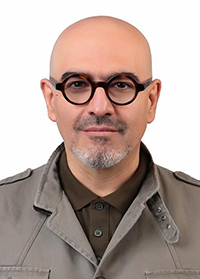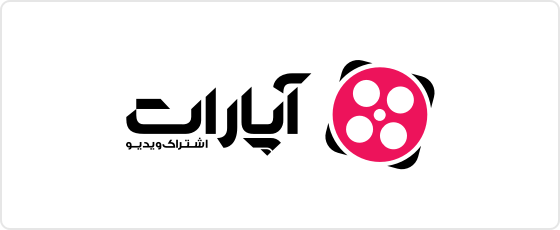::: Biography

Ramin Heydari Faroughi, born on May 21, 1966, is a well-known producer and director of TV documentary series in Iran. Faroughi, best known for his poetical tone and language, is passionate about the roots of civilizations and the comparative research of various cultures, he has documented more than nine thousand minutes in Iran and dozens of countries in different continents. Not only he is the producer but also the director of the largest international documentary series in the history of Iranian television which he has worked on for ten years in various parts of the world. This documentary captured the attention of the audience and very well received by the critics at the 5th Jame Jam Television Festival in 2019 in the category of achievements the Of documenting for the harmony of words, images and music. Faroughi won the Best Director Award for Best Documentary Series in the first edition of the “Sun, Wall, Orient” documentary in China.
Life and education Ramin Heidari Faroughi was born in Tehran. Due to his father’s military career, his childhood was marked by numerous trips. In his collection of artistic works, he has created his documentaries of itinerary in his narrative way. His acquaintance with culture, art and books also goes back to the interests of his mother who was a passionate teacher.
Faroughi ranked 4 among all the participants of the nationwide university entrance examination and managed to enter the Faculty of Cinema and Theater of Tehran University of Arts in 1989. In 1993 he graduated in the field of cinema directing with flying colors. In 1998, he completed his master’s degree in art research at the same university.
In 2016, Faroughi did his PHD in the field of philosophy of art at the Faculty of Art and Architecture of Azad University of Tehran. The title of his doctoral dissertation is “(Authenticity and Beauty in the Existential Critiquing of the Contradictions and Creating Balanced Proportions; A Comparative Ontological Analysis of Gabriel Marcel and Hafez.) Throughout his studies, he worked in the department of Research and Development as well as Children and Teenager’s department of Farabi Cinema Foundation for 5 years. He officially began his career as one of the founders of video clip making in the winter of 1995.
His music video “Navai” is very well-known works in this field. Roya Nonahali, a renowned Iranian actress who has acted in this video clip, is his wife and has been in Faroughi’s video clips and documentaries for many years.
Ramin Heydari Faroughi has produced several video clips and nearly a hundred commercial videos for Iran’s banking system, and has been working as a creative director and art consultant for advertising companies. Since the end of his undergraduate studies, he has been teaching at prestigious universities such as the Faculty of Cinema and Theater of the University of Arts and the University of Surah. From his student days, Faroughi has been involved in film criticism and writing research papers in the field of cinema, and has collaborated with Soroush, Surah and Farabi periodical as well as Film Report. He has also been an expert and a presenter of cultural and cinematic programs on various television networks.Faroughi has been honored to have hosted the closing ceremony of various outstanding film festivals such as “Cinema Haghighat”, the first independent celebration of Iranian documentary cinema and the first award for the future studies of Iranian cinema.
Ramin Heydari Faroughi started documenting in the Indian subcontinent in 1997 by making the documentary “River to Paradise”. “River to Paradise” is the first documentary series on Iranian television on the subject of foreign culture and literature. Later on, he traveled to various countries in Africa, Asia and Europe for two decades for his other documentaries. His other activities in the field of cinema include being a member of the jury of prestigious film festivals such as “Haghighat Cinema Festival”, “Cinema House Celebration” and “Fajr Film Festival”. In 2018, he was a member of the film’s selection committee for the Academy Awards. Faroughi has been the chairman of the board of directors of the Association of Documentary Film Producers for two terms since 2017. In 2018, he was elected as the first chairman of the Iranian Association of Fine Arts and Cinematic Arts (Cinema House Academy). Time, language, travel and travelogues, knowledge of the cultural and artistic roots of civilizations, comprehensive sociology of development in developing countries, philosophical aesthetics and poetry are the central themes of Ramin Heydari Faroughi’s artistic work. Faroughi’s documentaries have a travelogue structure and a poetic tone. In his first documentary, “River to Paradise,” he tells the story of the historical migration of Iranian artists and mystics to the Indian subcontinent, following the footsteps of architecture, literature, rituals. In his second documentary series, “Knot”, Faroughi deals with the economics, culture and aesthetics of Iranian carpets and its relationship with architecture. In the documentary series “Didar “, he examines the lives of a number of Iranian artists and thinkers and the type of their creative association with time.”Rahi” is the only Faroughi experience in this form of television programming. After working in various fields of research, the documentary “Here is Africa” he traveled to the African continent he also analyzed capacities, history and pathology of development in African countries in the story of the Iranians’ journey from the port of Siraf to the island of Zangbar in “Tanzania”.
During his trip to China, Faroughi tells the story of the presence of Iranians on the Silk Road, the history of Iran-China relations, as well as Chinese-style development. Following a long journey, Faroughi appeared in front of the camera this time and becomes the passenger and narrator of the documentary series “Khesht-e Behesht”. With a philosophical and sociological perspective, this documentary addresses the importance of the interrelationship between man, home, and the city from past to present. Khesht-e Behesht is a documentary about the aesthetic analysis and interpretation of human social life, which follows this approach in the form of looking at the history of the evolution of a number of important cities in the world. In this thousand-minute documentary series, he displays how cities reveal us; and how it is possible to understand a city and the types of relationships of its people and also their views about ugliness and beauty. Man’s need for all kinds of expression, the history of language formation and the path of its evolution are the subjects of Ramin Heidari Faroughi’s latest documentary series.










